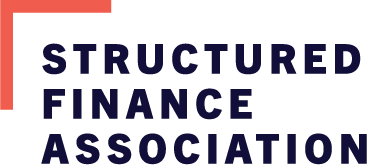CFPB’s Plan to Supervise More Nonbanks: A Step Too Far?
- Written by:
- Alyssa Acevedo, VP of Policy Development
On April 25, 2022, the Consumer Financial Protection Bureau (CFPB) announced that it will begin to examine nonbank financial companies “that pose risk to consumers” by invoking a “dormant authority”. This “dormant authority” involves a largely unused legal provision within the Consumer Financial Protection Act (CFPA, also known as Title X of the Dodd-Frank Act). This would effectively be an expansion of the CFPB’s supervisory authority.
As part of this announcement, the CFPB is also seeking comments on their proposed amended procedural rule that will authorize the release of its decisions so that they are available as a precedent in the future.
Some Background
For the past decade, the CFPB has had limited its supervisory activities of nonbank entities and other “large participants”. The CFPB released rulemakings to define thresholds for these entities that are subject to supervision in the markets of consumer reporting, debt collection, student loan servicing, international remittances, and auto loan servicing.
Expansion of Authority
The Dodd-Frank statute that expands the CFPB’s supervisory authority was implemented through a 2013 procedural rule that has largely not been invoked for nearly a decade. The CFPB’s use of this “dormant authority” scopes in nonbank “covered persons” for purposes of the CFPA.
“Covered persons” include[1]:
- Any person that engages in offering or providing a consumer financial product or service; and
- Any affiliate that acts as a service provider to such person.
The CFPB’s supervisory authority of these covered persons include[2]:
- Assessing compliance with the requirements of Federal consumer financial law;
- Obtaining information about such persons’ activities and compliance systems or procedures; and
- Detecting and assessing risks to consumers and to markets for consumer financial products and services.
A Step Too Far
The CFPB may use this “dormant authority” when it “has reasonable cause to determine” that a nonbank “is engaging, or has engaged, in conduct that poses risks to consumers with regard to the offering or provision of consumer financial products or services”. This would involve sending a “Notice of Reasonable Cause” listing consumer complaints or other information obtained pertaining to conduct that poses consumer risks. Companies may attempt to appeal – however, all appeals run through the 1) CFPB’s own Associate Director of the Division of Supervision, Enforcement and Fair Lending and then 2) the Director of the CFPB. Neither of these Directors are required to provide any sort of impartiality while reviewing[3].
The CFPB’s proposed amended procedural rule also allows for the Director to publish information that the company is subject to supervision as well as the reasons why that company appears to be posing risks to consumers.
Potential Implications for Our Market
This expansion gives the CFPB supervisory access to fintech firms, which they’ve named specifically in their announcement, that offer consumer product and services. It will allow the CFPB to conduct in-depth examinations of these fintech firms despite not having any sort of supervisory jurisdiction.
We could assume for our market then that fintech firms who are reliant on financing their lending activities through capital markets, specifically securitization, will face these in-depth examinations as well. So, what does the CFPB’s efforts to supervise nonbank entities mean for our market?
The action of the CFPB extending the scope of who they consider “covered persons” hits on similar arguments made in the CFPB v NCSLT case. As a reminder, in this ongoing court case, the CFPB is attempting to assert that securitization trusts are “covered persons” – thereby challenging the fundamental core of the structure. Inaccurately treating securitization trusts as such has severe adverse public policy consequences. Likewise, the CFPB attempting to claim to have supervisory authority over fintech firms who are reliant on financing their lending activities through securitization, comes dangerously close, and inappropriately so, to making the CFPB one of the primary regulators in our industry.
be important for our industry to consider the downstream impact on investors and consumers as a result of the CFPB’s predicted efforts to supervise nonbank entities. In-depth examinations and the threat of CFPB Director partiality runs the risk of shaking both investor and consumer confidence in a market with already robust policies and procedures to ensure that they are appropriately managing risk.
SFA will continue to follow the developments around this issue and keep our members up-to-date as they continue to consider the implications.
[1] https://www.law.cornell.edu/definitions/uscode.php?width=840&height=800&iframe=true&def_id=12-USC-1258700831-149880693&term_occur=999&term_src=title:12:chapter:53:subchapter:V:part:B:section:5514
[2] https://www.law.cornell.edu/uscode/text/12/5514
[3] https://www.cadwalader.com/fin-news/index.php?nid=9&eid=73
Latest Blogs

SFVegas 2024 AttendeeHub Login Instructions
March 2024
Securitization Benefits Americans by Reducing Risk and Interest Rates
December 2023
Consumers Defy Economists’ Optimism
November 2023
Recent Trends in U.S. Home Prices and Mortgage Interest Rates
November 2023
Stop the Government Debt and Spending Spiral
November 2023